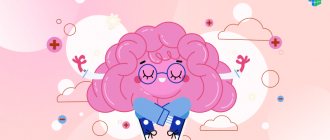Are you waiting for a special moment to begin to perceive your life more positively? Do you have prejudices and stereotypes about happiness that make you think that this feeling requires some specific events or activities? Do you feel like the level of stress in your life makes it difficult for you to feel good and makes it difficult for everyone else to understand the stress? If you can answer yes to any of these questions, chances are you've been approaching life negatively for too long. You might find some tips useful that describe what positive people tend to do differently. Follow their tactics to transform your own outlook on life.
What it really means to be a positive person
Our brain makes us constantly think about some scary things and expect them to come. Even when we want to see something good, we still fall back into the habitual pattern of “preparing for a storm” that never comes. We are skeptical about being “positive” because we prefer to be realistic, informed and somewhat cynical.
But how realistic is all this? And how informed are we? Look back at your life. How many times have your fears reflected reality or predicted the future? How many insurmountable problems turned out to be minor and quickly forgotten troubles? How many times have you waited for the truly worst outcome?
Positive people, in fact, do not force themselves into this positivity by ignoring problems or suppressing their feelings and sensations. They simply are not guided by the idea that something terrible looms ahead and that it could happen at any moment.
Being positive does not mean that you are not aware of the risks and possible adverse outcomes. You just don't think that the most likely outcome will be a bad one. You are confident from the very beginning that everything will be okay - and this is the most productive and realistic way to think about life.
Being “positive” means looking for answers rather than looking for problems.
This means a desire to see change.
This means not judging other people and giving them your value judgments.
This means getting help.
This means forgiveness.
This means letting go of prejudice and judgment.
This means that you want to see the best in people and hope that they see the best in you.
This means that you do not force yourself into the “good person” format.
This means asking yourself how you can improve your life by just 1%, every day.
This means the desire to work and develop, despite your fears.
But above all, it means believing in your strengths and your potential.
That’s right: this means restoring your inner strengths that have been dormant within you for a long time. This means understanding that you can change something by constantly working on yourself.
Your choice to believe in positivity means being fully aware of the fact that you are the only one who can change your state of mind and make it the epicenter of your new and positive worldview. You don't need to force yourself and put on a fake smile - you just need to believe that the probability of good events is much higher than the probability of bad events.
Share the post with your friends!
Source
Diagnostics
Do you want to know what type of thinking prevails in you?
The simplest test
There are 3 possible answers to the questions: yes, maybe (possibly, sometimes), no.
- Do you feel younger than your age?
- Are you self-confident?
- Do you suffer if you have to work under duress?
- Do you like listening to Bach, Mozart, Beethoven and other classics?
- Do you strive to connect with others?
- Is an inferiority complex not about you?
- Can you handle everything?
- Do you often generate ideas and become the initiator of something grandiose?
- Do you often need to get out of difficult situations?
- Do you always achieve your goals?
- To everyone else, are you positive?
- Do you never get discouraged?
- Do you often get interested in something new and unusual?
- Are you able to experience happiness to the level of bliss?
- Are you ready to meet fate's challenge?
Each answer “yes” is scored 2 points, “maybe” - 1, no - 0. Let’s add up. Let's look at the results:
- 21-30 points
You are the perfect candidate to be one of the biggest proponents of positive thinking. You see only the good and bright in everything, you are focused exclusively on success, you love everyone. Undoubtedly, you achieve many heights, making the world around you kinder. However, the main thing here is not to overdo it and not fall into traps (see above). You run away from problems, deliberately not noticing all the difficulties that life is full of. Don't overestimate yourself.
- 11-20 points
This is the golden mean between the polar sides - negativism and positivism. You realistically assess the situation and know how to control your mental balance. You are friendly, but only to a select few. You enjoy life, but at the same time you know how to see not only the sun, but also the rain. You achieve success thanks not only to natural abilities, but also to hard work. However, your big disadvantage is too many doubts and unclear answers. You often stand at a crossroads, which leads to constant breakdowns.
- 0-10 points
You definitely have a lot to learn from the positivists. You are a bright representative of pessimism. You are one of those who hopes for the worst and the best will come. However, sometimes you have to wait for luck for years. You are probably a good worker, a reasonable person, a caring husband (tender wife). However, those around you are often burdened by your whining about how bad things are for you. Think about what you are talking about with others: the economic recession, the failed political regime, your mortgage, quarrels with your wife - nothing but problems and complete hopelessness. Change this worldview urgently. At least find other topics to talk about.
Read also: How to make new lipsticks out of leftover lipsticks
Rorschach color test
What do you see in this picture?
Associations such as:
- flower in warm pink and orange shades;
- violin;
- human's figure;
- butterfly;
- crab in pinkish tones, reminiscent of a holiday on the Cote d'Azur.
The tendency to negative thinking manifests itself in the presence of the following associations:
- flower in cool, bluish shades;
- an unpleasant arthropod that causes a chill on the skin;
- heads of wild animals;
- gargoyles;
- fantastic beast from a horror movie;
- mask;
- skull, internal organs, pelvic bones.
Doubts when a person cannot decide what he sees in the picture also indicate that he needs to work on his attitudes, which are still far from positive. Or he simply experiences unpleasant sensations when looking at her.
A positive person focuses on possibilities rather than limitations.
Some people look first at limitations when making plans for the future. If some obstacle arises, a person tries to remove this goal from the list of tasks. A positive person looks first of all at his own capabilities and only then makes a decision. He is absolutely not interested in why it is impossible or difficult to accomplish his plan. The main thing is to have the opportunity to try to do it.
Even if this method leads to failures, a positive person will not blame everyone around him, but will analyze why this happened and try not to make similar mistakes in the future.
How is a positive person different from others?
Each person develops a certain model of behavior and attitude towards life, which he constantly adheres to. Often people easily take offense at others, harbor grievances, and hatch plans for revenge. A negatively-minded person does not share existing information with others and does not try to somehow change the world around him. Most people are afraid of change because they think that any change is associated with trouble.
The range of interests of shallow people, fixated on troubles, is narrow. They get information from the tabloid press or television, and have few hobbies. They do not strive for self-development and try with all their might to maintain their peace.
A person is often not ready to take responsibility for how his life turned out. He believes that if circumstances had been different, he would have been able to get more. And this is one of the main differences in the psychology of a positively-minded individual and that which is inherent in other people.
A cheerful person understands that happiness in his life depends on himself. He knows that on the way to it he will make many mistakes, and is ready to answer for them. Positive people respect the points of view of others and are careful about their feelings. They know how to sincerely rejoice at another person’s success and give compliments. Such people do not have the desire to lie or embellish something.
An energetic, cheerful person reads a lot and is interested in what is happening around him. He has many hobbies and a wide circle of friends. Cheerful people always learn because they like to develop and constantly learn something new. They are not afraid to take initiative, they are not afraid of criticism, because they are confident in themselves and are always ready to conduct a constructive dialogue.
Changes for optimists are an important aspect in life, since they see in them an opportunity to change their lives for the better, develop some new qualities or improve existing ones.
Settings
Attitudes and beliefs can radically change your train of thought and completely transform your worldview. The following will help you think optimistically :
- I can handle everything. Expresses readiness to solve any hypothetical problem.
- I can be happy.
- I deserve the best. Helps fight low self-esteem.
- I believe that I will succeed. In contrast to the “I can handle everything” attitude, it is focused on motivation when managing projects. When a person goes towards a big ambitious goal.
- I can achieve what I want. Henry Ford said: “I want it, then it will happen.” The attitude is aimed at developing determination.
- Nothing happens in vain. Whatever action is performed, benefits will come from it. It may take time, but the effort spent will be rewarded.
- I make my own decisions and am responsible for their consequences. The feeling of freedom and independence is one of the most important things with positive thinking. The ability to follow one’s own interests and make choices based on true inner desires makes a person happy and gives self-confidence.
The main thing is to repeat these settings to yourself as often as possible. Especially during difficult stressful periods.
How to become a positive and cheerful person?
Changing existing patterns of behavior and attitudes towards life is difficult, but always possible. To become a positive and joyful person, you need to learn to identify negative traits and change them to positive ones. This is not an easy, labor-intensive job that requires willpower and a great desire to become different. But if you regularly follow some tips specially developed by psychologists, you will be able to achieve changes faster.
Positive people don't wait for a good day - they create it themselves.
The hope that life will provide an opportunity to change something or that an opportunity will present itself is often not justified. A person lives in anticipation of change or good luck. Positive people do not wait for some opportunity to present themselves, they create and find these opportunities themselves. To do this, they constantly work on themselves, expanding the range of their capabilities.
They do not wait for some favorable moment, but try to implement their ideas and plans immediately. In difficult times, optimists do not give in to despair, do not plunge into suffering and do not wait for loved ones to come to their aid. They analyze the situation and immediately begin to look for a way out of it. A positive-minded person always remembers that he himself is the architect of his own happiness. He is not burdened by this approach to life; on the contrary, his own energy, resilience and strength give him self-confidence.
Positive people easily part with things they don't have
Most people do not know how to part with old ideas and objects. For them, a big problem is ending a relationship, changing their lifestyle, moving, etc. They keep old things for a long time because they think that they might be useful to them someday. They do not allow themselves to leave an activity that is boring to them and has become uninteresting, because they have already become accustomed to it. It is difficult for them to break off contacts with friends, even if communication with them no longer brings satisfaction.
The old takes a lot of strength and weakens people at the energy level. It deprives a person of opportunities for self-development and does not allow him to move on. A person with a positive outlook on life does not dwell on failures and mistakes of the past. He is not trying to save a relationship that has long since exhausted itself. He can change jobs, part with incorrect attitudes and objects that have become old or are no longer needed.
To maintain positivity in the house, to allow positive energy to function freely, you need to throw away unnecessary things and clean regularly.
The past must remain in the past
Often, reliving the past takes up a lot of people's time. Constant analysis of what happened, experiencing old emotions, long internal dialogues take a lot of vitality and energy from a person. In addition, he cannot objectively assess the current situation. Even experiencing positive emotions has a negative impact on a person’s psychological state.
You should return to the past when you need to analyze your mistakes. However, instead, the person begins to blame or feel sorry for himself, worry about what has not come true, etc.
Nostalgia has a strong negative impact on the human psyche. It makes him vulnerable, weakens his faith in himself and in the possibility of change, so it is necessary to avoid this feeling.
Gratitude is the middle name of a positive person
A person with a positive attitude towards life does not focus on troubles or failures. Any situation evokes sincere gratitude from him, since it is a valuable lesson on the path of his development. This type of thinking involves a feeling of sincere gratitude for the fact that you can smell, taste, experience new impressions, feelings, etc. For positively minded people, the world seems like a large treasure trove that they have access to every day.
Understanding the Positive
What is positivity and why is it important? To do this, let's take two equally competent, smart, hardworking people, but one of them will be positive and the other negative. When a positive person goes to work, he is happy with the weather, grateful to other people for their help, and notices the employee’s individual contribution to the overall result. A negative person will constantly complain about how busy they are at work, the traffic jams, and how stupid their bosses' decisions are.
A positive person always sees the glass as half full, while a negative person always sees it as half empty. An optimist has an affirmative bias, meaning he wants to focus on human potential and strengths. A pessimist decides to focus on problems and weaknesses.
You might think that a pessimist sees reality, that he is quick to spot potential threats or problems that an optimist misses. Here's something to make clear: having a positive attitude in the workplace doesn't mean you bury your head in the sand or ignore unpleasant realities or problems, it's just that when you see a problem, you go into solution mode rather than despair. You are not such a soft person that you never give critical feedback to anyone, but you balance constructive criticism.
Positivity is a well-researched way to get better results in the workplace while enjoying life to the fullest. Kim Cameron, in her book Positive Leadership, cites more than 40 studies illustrating consistent and compelling evidence that positive actions like the ones you'll learn in this article do have health benefits. Positivity helps us be more creative.
Research from the University of California, Berkeley School of Business found that managers with greater positivity were more accurate decision-makers, were more effective in interpersonal communication, and spread positivity to their entire team. Athletes whose coaches asked them to review tapes of their successful games performed better themselves than athletes who were asked to review their unsuccessful attempts.
When we focus on successes rather than failures, our performance improves. Health, creativity, effective leadership, increased productivity, all these benefits come when we carefully work on our thoughts.
The Toxic Positivity Trap: Why Exuding Cheerfulness Is Not Always Good
Have you ever felt like you had to hide your negative emotions? As if you are forced around the clock and at any cost to maintain the image of a “happy person”?
It may seem counterintuitive, but positivity can be toxic.
British therapist, psychologist and author Sally Baker agrees: “The problem with toxic positivity is that it requires us to numb some of the wide range of emotions we may feel in a difficult situation.”
© Getty Images Accepting our emotions makes us stronger, says Sally Baker
To understand toxic positivity, we must differentiate it from positive thinking. It sounds similar, but they are completely different things.
In the 1990s, Seligman, then president of the American Psychological Association, told a conference that psychology must take a new step in studying scientifically everything that makes people happy.
In his famous 1995 book The Optimist Child, the American psychologist explained that people are not born pessimists, but become pessimists because of their life experiences. He argues that we can combat this pessimism and transform our negative thoughts into more positive ones.
Great! So if I'm sad, all I have to do is focus on being happy, right? Not certainly in that way. This would be a shortcut to the trap of toxic positivity.
Why you can't suppress emotions
It is human nature to experience both positive and negative emotions, but such a clear division actually does not exist. All emotions must be expressed and experienced in one way or another, since if they are ignored they do not go away, but only become stronger.
In society today, a whole dictatorship of positive emotions has developed. Our motto: “Always be positive.” A person who has lost his job is told to stop getting upset over trifles. People who are diagnosed with health problems, even very serious ones, are told that they should focus all their efforts on maintaining a good mood.
Let’s break down all the disadvantages of such a strategy.
You are deceiving yourself
It is negative emotions that prevent you from engaging in self-deception. For example, if dealing with dissatisfied clients makes you irritated and angry, you will do everything possible to change your hated job to something that is more to your liking.
Negative emotions help you protect yourself from unpleasant people, activities, and situations. The main thing is to listen to yourself and your feelings.
You don't think critically
“Just look at it positively” is not the best thing to say to someone who is going through a difficult time. However, it’s even worse when a person’s problems are attributed to his shortcomings and weaknesses (low or lack of motivation, pessimistic outlook, etc.).
External circumstances and their influence have not been canceled. And instead of thinking about all the good things, in some situations you need to think about the reasons for the problem and methods for solving it.
When you are convinced that “everything is fine” or “it will definitely be fine after a while,” you do not try to fix everything right now and do not consider the possibility of worsening the situation.
You're not developing skills that will help you in life.
By staying positive and happy 24/7, you're missing out on opportunities to develop skills that will help you later. To put it bluntly, instead of learning to cope with bad times, you deny their existence or their impact on your life as a whole.
You are depriving yourself of the ability to experience emotions correctly.
Let's say there is a person in your environment who irritates you. Maybe his arrogance, or maybe his boasting or rudeness. In any case, when communicating with him, you may experience anger, disgust and other negative emotions.
You can express your emotion by hitting the person, being rude back, or making an unflattering remark. Or you can reduce communication with him to nothing, based on your inner feelings. This will solve two problems at once: you will get rid of negativity now and protect yourself from its influence in the future.
As you can see, negative emotions can be experienced in different ways. It is not necessary to do things that you might end up feeling ashamed of or that could have a detrimental effect on your reputation. But by ignoring negative emotions, you are unlikely to learn to control yourself and choose exactly the response option that will cause you the least problems.
You understand people around you less well
When you decide to always be positive and say goodbye to negativity completely, your relationships with others deteriorate sharply. By refusing negative emotions, you expect the same from your interlocutor.
It is extremely necessary for a person to be able to respond to negativity adequately. It is unlikely that any of your friends or loved ones will like your positive reaction to negative information. At best, this can be perceived as tomfoolery, and at worst, as a devaluation of their problems. In general, many friendships and family ties were destroyed because of this, so be careful.











